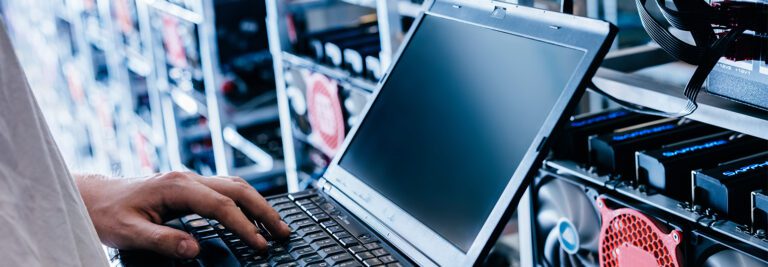When you’re thinking of things that keep you up at night, you may not consider information security. However, from an IT perspective, the things that create possible vulnerabilities with the security we have in place at any time can keep us awake in the wee hours. Here are a few recommendations on what you can do to help ensure that you are as secure as possible, too.
Use Long & Strong Passwords. As stated in a previous Close to Home article, setting a strong password is among the most important things you can do to ensure you are as secure as possible when accessing tools. While the use of multi-factor authentication (MFA) has allowed us to be more secure, this does not rule out the need for password security.
Things to keep in mind regarding your password:
- Change your password regularly. We recommend that you change your password every 60-90 days. When you do so, create a password that is different from your old one.
- Make it a complex password. A complex password is one that contains a capitol letter, lower case letter, number and special character (!@#$%). We also recommend that your password be at least 14 characters long.
- Don’t share your password. Remember that your password is exactly that: It is YOUR password and not anyone else’s password.
- Don’t write down your password. Writing your password down is like providing it to someone else.
Be Cautious When Using Email. Email security also plays a large part in your digital security. Similar to password security, a Close to Home article provides additional details for you to keep in mind, and posters should be in your offices with the same information. You should also keep these things to keep in mind about email security.
- If an email looks too good to be true, it probably is.
- If you’re not expected an email, it is likely spam, phishing or plain old junk (e)mail.
- Within webmail, there is an option you can select (Phish Alert Report) that identifies email as a potential phishing message on the right side of the screen.
Secure Your Mobile Devices. Securing a mobile device (phone or tablet) also is recommended. All devices can be set up with a PIN number associated to unlocking them, and many now can use biometrics (that is, a fingerprint or face recognition) to unlock the device.
Leverage Security Tools for Your Personal Computers. If you have a personal computer that you use outside of the office, in addition to the actions mentioned above, there are things you can do to ensure that your computer is protected. Various malware and virus protection tools are available, and many of these tools provide a high level of functionality, often even within their own free versions. Depending on which internet service provider (ISP) you use at home, there are available versions of their tools that you can download for use. We highly recommend ensuring that you have some sort of protection on your personal computer.
Keep Up-to-Date with Updates. The things that go bump in the night are always looking for ways to scare you, and the software providers are always looking for ways to keep you as protected as possible. In addition to virus protection software, software updates are deployed on a regular basis that provide additional protections for your computer, its virus protections and your mobile devices.
Should you need assistance or have questions on any of these issues, please feel free to contact the Service Desk via a phone call, email or even our new chat function!
